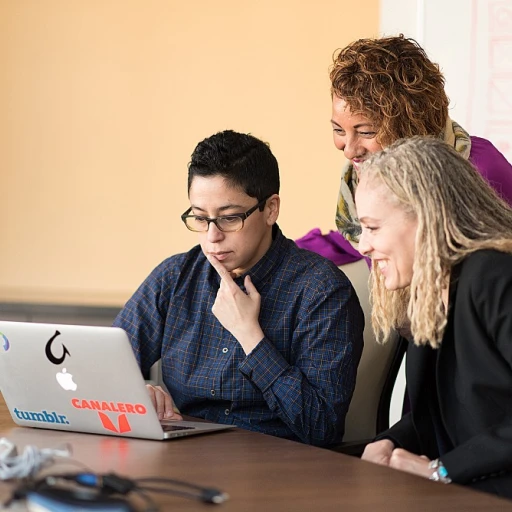
Defining the Peer Specialist Role
Exploring the Role of a Peer Specialist in Mental Health Services
The role of a Peer Specialist is increasingly recognized within the behavioral health sector as crucial to supporting individuals in their mental health and recovery journeys. Different from traditional mental health support roles, a Peer Specialist leverages their own lived experience with mental health or substance use recovery to provide unique, empathetic assistance.
Unlike other healthcare professionals, this position goes beyond just deliverig support services. It demands a profound understanding of the recovery process, as Peer Specialists provide not only guidance but also inspiration through personal narratives. Their experience offers hope and tangible proof of the possibilities in recovery, crucial for those receiving community support services.
Peer support in mental health services is not a one-size-fits-all job. It requires a careful balance of personal insight and professional skills. Technical assistance is often necessary to mesh personal experience with structured health services. This includes understanding data privacy policies and maintaining boundaries while offering behavioral health support.
Within many support service programs, Peer Specialists might work full time or part time, based on community needs and available resources. Their work aids in bridging gaps in behavioral health care by offering personalized peer recovery support. Specialists are valuable assets that complement clinical interventions, enhance service delivery, and engage in fostering long-term recovery.
Given the broad scope of their responsibilities, hiring a Peer Specialist focuses not just on personal experience, but also on how well individuals can integrate those experiences into a structured support program. With the right skills, these specialists can make profound impacts, transforming the peer support landscape.
Key Skills and Qualifications
Core Competencies Necessary for Peer Specialists
Understanding and defining the skills and qualifications required when hiring a peer specialist is crucial not only for ensuring effective support services but also for creating a strong foundation for recovery programs. A peer specialist should exhibit exceptional abilities in various areas that are integral to their role.
1. Lived Experience: The cornerstone of a peer specialist's qualification lies in their own lived experience with mental health or substance abuse difficulties. This unique perspective enables them to effectively empathize with others in recovery, providing invaluable personal insights that are beyond formal training.
2. Communication Skills: Effective communication is essential. Peer specialists must be able to express themselves clearly, listen actively, and provide feedback constructively. This skill is vital in facilitating discussions within recovery support and community service groups where open, honest dialogue defines the recovery process.
3. Knowledge of Health Services: A comprehensive understanding of the behavioral health services landscape helps peer specialists to navigate and utilize the resources available within mental health support services. Their insight into health services ensures they can guide individuals towards appropriate health recovery support.
4. Ability to Provide Emotional Support: Emotional intelligence is a key component of the role. Peer support specialists must offer unwavering emotional support, helping others walk through challenging phases of their recovery journey.
5. Certification and Training: Depending on the region and specific program requirements, peer specialists might need certified peer credentials. Ongoing training technical support further refines their skills and helps keep up with industry standards and privacy policy guidelines.
Bear in mind, these competencies not only enhance the support offered but also promote job satisfaction and career development, aiding in the retention of skilled peer specialists. Investing time in finding the right candidates by assessing their key skills and qualifications is a pivotal step towards building a dedicated peer recovery team.
Challenges in Hiring Peer Specialists
Addressing Hiring Challenges for Peer Specialists
Recruiting peer specialists within mental and behavioral health services is often laden with unique challenges. These challenges arise due to the specialized nature of the role, which requires a blend of lived experience and professional skills. One key hurdle is the assessment of a candidate's personal recovery journey, which offers valuable insights into their potential to provide effective peer support. Understanding a candidate's experience with mental health or substance abuse recovery, and how they have navigated systems of support, helps hiring managers gauge their fit for the job. However, this requires a sensitive approach to privacy and the confidentiality of personal data. To address these challenges, it is crucial to establish clear criteria that take into account both personal and professional qualifications. Employers must prioritize candidates who not only have lived experience but also exhibit a readiness to share that experience responsibly as part of a peer support specialist role. Another significant challenge lies in navigating the technical aspects of interviewing for these roles. Often, the ability to demonstrate empathy, patience, and communication skills outweighs a strictly quantitative resume. Employing techniques such as scenario-based questions can reveal how a potential peer specialist might handle real-world situations they will encounter. Recruiting specialists also face the complication of ensuring the sustainability of enthusiasm and commitment from peers within their organizations. It's crucial to communicate a clear career path during the hiring process, addressing opportunities for full-time advancement and continued professional development. This approach aligns with wider organizational goals of retention and the growth of peer support programs. The hiring process should also consider the need for adequate support services. This includes offering comprehensive onboarding and training technical assistance to ensure new hires feel equipped to start their roles. For additional guidance on overcoming these obstacles in the hiring process, visit this insightful resource that outlines a candidate-centric approach to recruitment.Best Practices for Interviewing
Effective Interview Strategies for Selecting the Right Candidate
Conducting interviews for the peer specialist role goes beyond assessing qualifications and work history. It's crucial to understand the candidate’s experiences with mental health recovery, substance abuse, and how these have shaped their ability to provide support services within the community. Here are some best practices to consider:- Behavioral Interview Questions: Tailor your questions to delve into the candidate's lived experience. Queries that encourage them to share personal stories about their recovery process can provide insight into their empathy and understanding.
- Scenario-Based Assessments: Illustrate situations that a support specialist might face and ask the candidate how they would navigate these challenges. This can include providing recovery support, managing privacy policy concerns, or handling behavioral health crises.
- Technical Knowledge Evaluation: While personal experiences are paramount, ensure the candidate also understands the technical aspects of peer support. This includes familiarity with data privacy, health services policies, and the resources available for mental illness recovery.
- Evaluate Cultural Competency: Given the variety in community demographics, it’s essential that a candidate demonstrates an ability to effectively interact with diverse groups. Their ability to communicate with diverse individuals will significantly impact their performance in a full-time role.
- Collaborative Dialogue: While it's important for candidates to interface with other service providers and programs, assessing their willingness to engage in collaborative dialogue with the entire team will reflect their effectiveness in the role.
Retention and Career Development
Fostering Growth and Development
Retention of peer specialists in the mental health and recovery support sectors is crucial for maintaining a stable and effective workforce. To achieve this, organizations must focus on fostering growth and development opportunities. Providing continuous education and training technical assistance can enhance the skills of peer support specialists, ensuring they remain effective in their roles.
Creating a Supportive Environment
A supportive work environment is essential for retaining peer specialists. This includes offering full-time positions with competitive benefits and creating a community where peer specialists feel valued and understood. Encouraging open communication and providing resources for mental health and substance abuse support can significantly impact job satisfaction and retention.
Career Pathways and Advancement
Organizations should provide clear career pathways for peer specialists. This can involve offering opportunities for advancement within the organization or supporting further education to become certified peer specialists. By investing in the career development of their employees, service providers can ensure that their team remains motivated and committed to the recovery process and behavioral health services.
Utilizing Data for Improvement
Collecting and analyzing data on peer specialist performance and job satisfaction can provide valuable insights into areas for improvement. This data will help organizations tailor their support services and training programs to better meet the needs of their employees, ultimately leading to improved retention rates.
Balancing Personal and Professional Growth
It's important for organizations to recognize the personal and professional growth of their peer specialists. By acknowledging their lived experience and the unique perspectives they bring to the table, organizations can create a more inclusive and effective support system. This balance not only benefits the peer specialists but also enhances the quality of services provided to the community.









